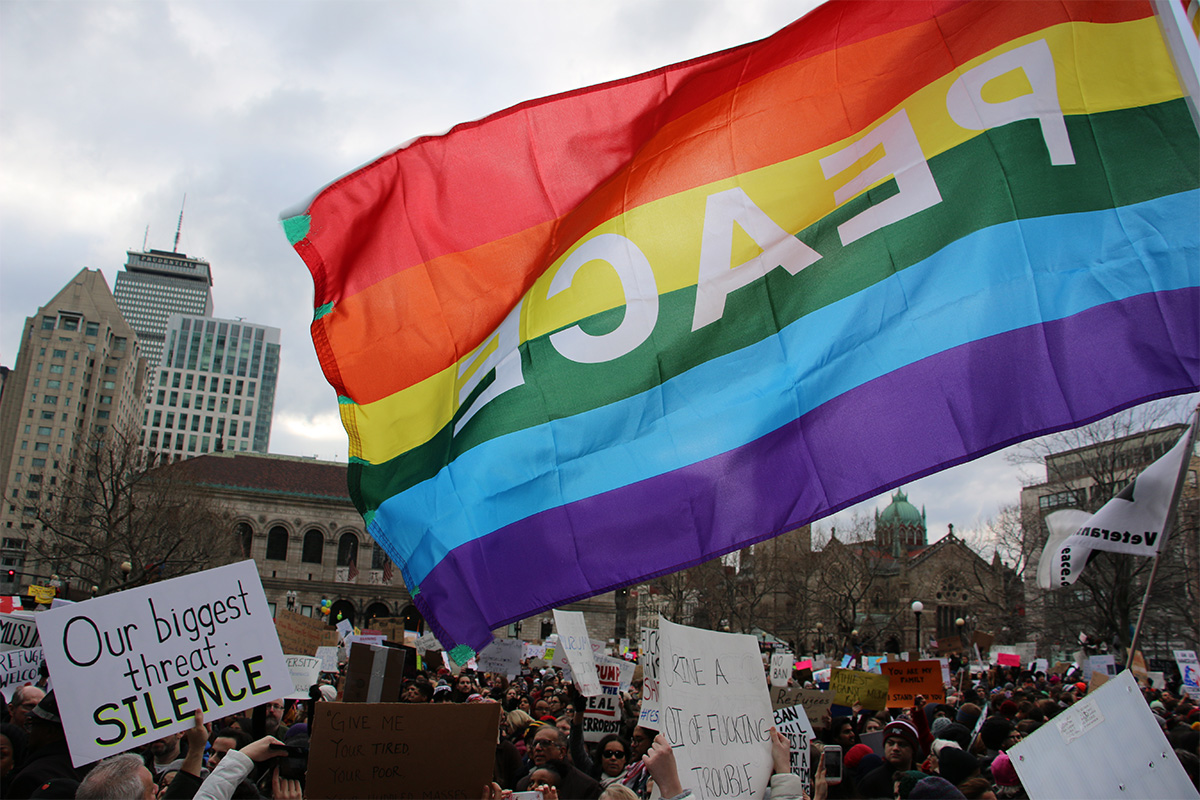Boston Hospitals Feel the Sting of Trump Travel Ban

Photo by Lisa Weidenfeld
Boston’s medical community may be among the victims of a travel ban signed by President Donald Trump.
Trump’s ban indefinitely forbids the resettlement of Syrian refugees; stops all refugee resettlement for 120 days; and bans citizens of Muslim-majority nations Iran, Iraq, Libya, Somalia, Sudan, Syria, and Yemen from entering the United States for 90 days. A federal judge has ruled that individuals currently detained in airports may not be deported, and a Massachusetts judge has opened Logan to citizens of the affected countries until February 4, but the long-term ramifications of the ban remain to be seen.
Here in Boston, many doctors, researchers, medical students, and undergrads hail from the affected countries. Not only are those individuals’ futures now uncertain, but their institutions must grapple with a political climate that could upset the city’s flow of ideas, scholars, and doctors.
For months, an Iranian researcher named Seyed Soheil Saeedi Saravi had been planning to study diabetes’ effects on the heart as a postdoctoral fellow at Brigham and Women’s Hospital (BWH). On Friday, his visa was terminated.
Saravi—the top life sciences graduate student in all of Iran—was to work in Dr. Thomas Michel’s cardiology lab at BWH. Michel, the son and grandson of immigrants, says he was aghast to learn of Trump’s executive order.
“This is a huge step backwards for American science and American biomedicine,” Michel says, noting that one third of American Nobel Prize winners are immigrants. “This is a statement of national priority that is entirely misdirected. Its implementation was, I think everyone can agree, tactically inept, and, I think, strategically misguided.”
Michel says he hopes the controversy will be smoothed over in time for Saravi to work in his lab as planned. But he says the executive order sends a message—and a negative one—to promising researchers not just from the seven targeted countries, but from nations the world over.
“There are postdoctoral fellows here and trainees and students from Europe, from India, from Japan, from Korea who are worried, who are scared…that they too could be marginalized and possibly deported,” he says.
Sadly, Saravi’s plight is not a solitary one. Vox reports that Iranian geneticist Samira Asgari was on Saturday removed from her flight to Boston, where she, too, was set to begin a postdoctoral fellowship at BWH. Nature writes that Kaveh Daneshvar, an Iranian molecular geneticist finishing his postdoc at Harvard Medical School (HMS) and Massachusetts General Hospital, now risks his status as a United States resident if he attends a professional conference in Canada next month.
HMS Dean George Daley wrote in an internal email Sunday that the Harvard community will likely feel the aftershocks of the policy for years to come.
“At Harvard Medical School, we are a magnet and a beacon for scholars, physicians and scientists from across the globe whose lives are dedicated to advancing knowledge and improving the lives of people everywhere,” Daley wrote. “The impact of this executive order on faculty, students, and staff has the potential to resonate far into the future, and to alter how we work with colleagues around the globe and how we care for international patients.”
Mass General President Peter Slavin and Massachusetts General Physicians Organization CEO Thomas Lynch made similar warnings in a joint email sent Friday. “As an academic medical center that draws scientists, staff, trainees and patients from around the globe, the MGH will undoubtedly feel the effects of this significant action in the days and weeks to come,” they wrote.
Students and professors from MIT and UMass Dartmouth have also been affected, the Boston Globe reports. Representatives from Beth Israel Deaconess Medical Center did not immediately return a request for comment, while a spokesperson from Boston Medical Center says there has been no reported impact on the hospital’s patients, doctors, and residents.


